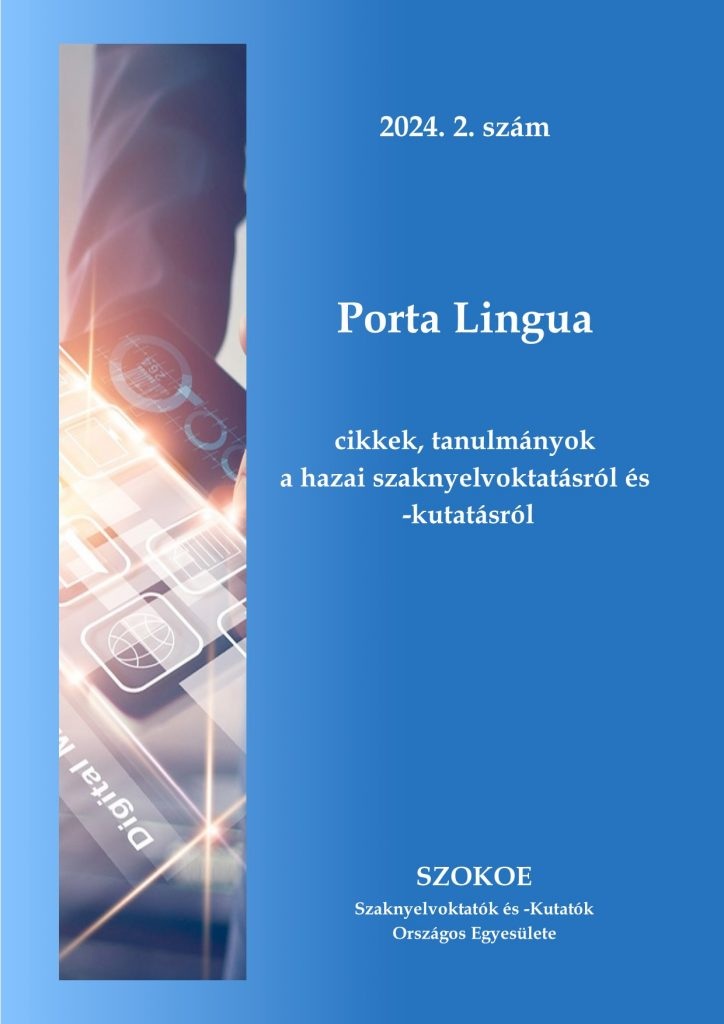A gépi fordítás megítélése a jogi szakfordítók körében és ennek következményei a jogi szakfordítképzés módszertanára nézve
Absztrakt
The paper introduces the results of a questionnaire in which qualified legal translators with a law degree reflect on their practical experiences and impressions regarding machine translation. The 37 respondents of the survey – all of them law graduates – obtained their legal translator qualifications at a post-graduate specialist training course that has been running at the Faculty of Law of the Pázmány Péter Catholic University, Budapest since 2004. The questionnaire was designed with the aim of surveying the impact of the rapid development of machine translation quality on the rationale and viability of legal translator training, and to detect the changes needed to be implemented in the structure of the training in the opinion of practising legal translators. The data received partly confirmed the preliminary assumption that although there is still unwavering demand for such a training, significant changes in its structure and curriculum would be indispensable. The responses provide insight into legal translators’ views on the nature of their work in the changed translation environment (including, e.g., employment opportunities or their own attitude towards the translation work). The results of the survey may
provide methodological clues not only for legal translation trainers but also for translator trainers of other special fields.
Hivatkozások
Balogh, D. (2020): Műfajtudatosság a jogi szakfordításban és szakfordítóképzésben. Doctoral dissertation. ELTE Digital Institutional Repository. Eötvös Loránd University: Budapest. https://edit.elte.hu/xmlui/handle/10831/51565?key=Balogh%20Dorka
Engberg, J. (2013). Comparative law for translation: The key to successful mediation between legal systems. In: Borja Albi, A. – Prieto Ramos, F. (eds.), Legal Translation in Context: Professional Issues and Prospects (pp. 9–25). Peter Lang
Fischer M. (2010): A fordító mint terminológus, különös tekintettel az európai uniós kontextusra. Doctoral dissertation. ELTE Digital Institutional Repository. Eötvös Loránd University: Budapest
Hilal, Ö. B. (2023): Rethinking Translator Competence in the Machine Translation Era. Translogos. 6/1. 45–74. https://doi.org/10.29228/transLogos.54
Hunnect survey (2021): The state of machine translation among Hungarian translators. https://hunnect.com/state-of-machine-translation-among-hungarian-translators/
Kenny, D. (2020): Technology and Translator Training. In: O’ Hagan, M. (ed.) (2020): The Routledge Handbook of Translation and Technology. Routledge: New York. Kindle edition. 498–515. https://doi.org/10.4324/9781315311258-30
Killman, J. (2024): Machine translation literacy in the legal translation context: a SWOT analysis perspective. The Interpreter and Translator Trainer. 18/2. 271–289. https://doi.org/10.1080/1750399X.2024.2344282
Kóbor, M. (2023): Gépi fordítás (nem csak) a fordítóképzésekben. Módszertani adalék a tudatos MT-használat oktatásához. Modern Nyelvoktatás. 29. 1–2. 7–23. https://doi.org/10.51139/monye.2023.1-2.7.23
Kóbor, M. – Szlávik, Sz. (2024): Hibaazonosítás és -tudatosítás az utószerkesztési kompetencia fejlesztésében. Fordítástudomány. 26/1. 59–70. DOI: https://doi.org/10.35924/fordtud.26.1.4
Prieto Ramos, F. (2014): Parameters for Problem-Solving in Legal Translation: Implications for Legal Lexicography and Institutional Terminology Management. In Wagner, A. et al. (eds.): The Ashgate Handbook of Legal Translation. Routledge: London. https://doi.org/10.4324/9781315612706
Prieto Ramos, F. (2015): Quality Assurance in Legal Translation: Evaluating Process, Competence and Product in the Pursuit of Adequacy. International Journal for the Semiotics of Law - Revue internationale de Sémiotique juridique. 28. 11–30. https://link.springer.com/article/10.1007/s11196-014-9390-9. https://doi.org/10.1007/s11196-014-9390-9
Prieto Ramos, F. (2024): Revisiting translator competence in the age of artificial intelligence: the case of legal and institutional translation. The Interpreter and Translator Trainer. 18/2. 148–173. https://www.tandfonline.com/doi/full/10.1080/1750399X.2024.2344942
Pym, A. (2013): Translation Skill-Sets in a Machine-Translation Age. Meta. 58/3. 487–503. https://doi.org/10.7202/1025047ar
Sandrini, P. (2018): Terminology Work In Different Domains: Legal Terminology. In J. Humbley et al. (eds.): Languages for Special Purposes: An International Handbook. De Gruyter Mouton. https://doi.org/10.1515/9783110228014-026
Šarčević, S. (1997): New Approach to Legal Translation. Kluwer Law International: Alphen aan den Rijn
Sulyok, K. (2023): Kérdőíves felmérés a fordítói, a lektori és az utószerkesztői kompetencia megítéléséről a fordítóiparban. Fordítástudomány. 25/2. 34–57. https://doi.org/10.35924/fordtud.25.2.3
Szlávik, Sz. (2023): Az utószerkesztési kompetencia (PE) fejlesztésének lehetőségei. Modern Nyelvoktatás. 29.1–2. 35–48. https://doi.org/10.51139/monye.2023.1-2.35.48
Tamás D. M. (2017): Bevezetés a jogi terminológiába a terminológus szemüvegén át. ELTE Eötvös Kiadó: Budapest



